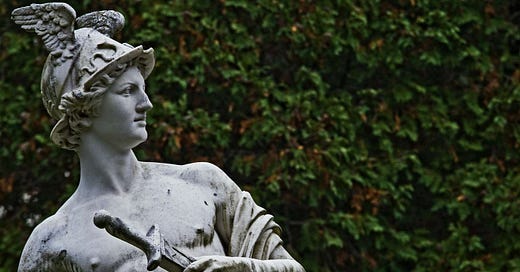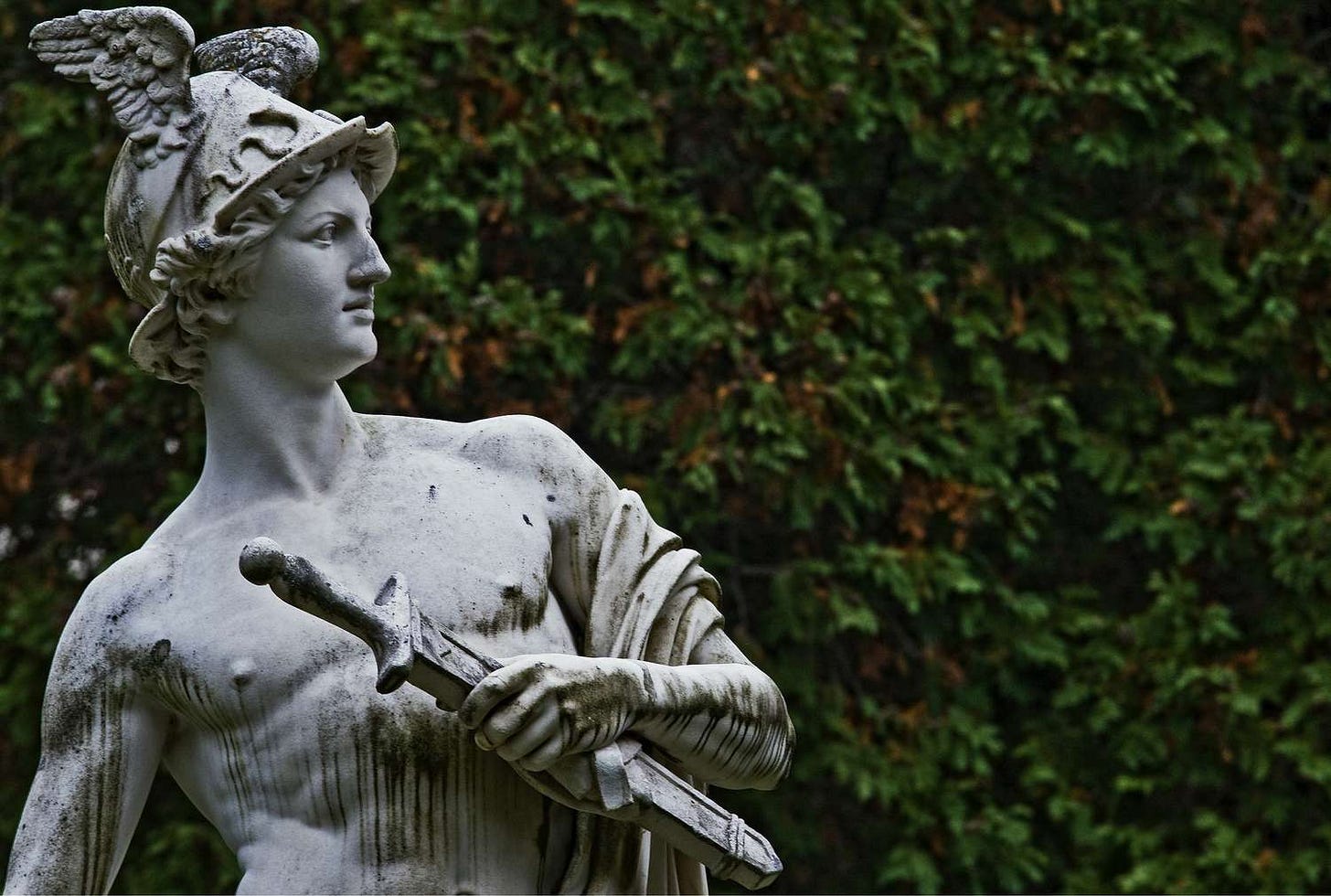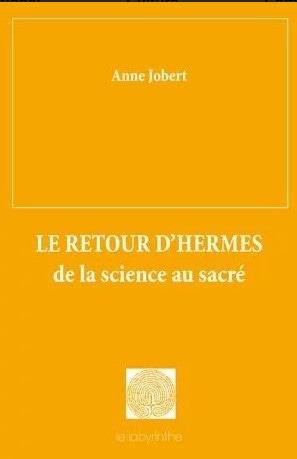Anne Jobert's «Le Retour d'Hermes» argues for reuniting modern science with European pagan traditions to create a more holistic and culturally integrated scientific understanding.
Very little is known, especially in the English-speaking world, about Anne Jobert and her work, Le Retour d’Hermes (TN: The Return of Hermes), published in 1984. Anne Jobert was a young woman who was very active in the European New Right for about 15-20 years. She had a strong scientific background but was also interested in spirituality. Sometime in the early 1990s she disappeared from the scene. However, she left us with her work, Le Retour d’Hermes, which Alain de Benoist considers to be an important contribution to the “pagan” thought of the European New Right.
In Le Retour d'Hermes, Anne Jobert presents a compelling argument for reconnecting modern science with its cultural and mythological roots, particularly emphasizing the value of European pagan traditions. She argues that science has become disconnected from its cultural foundations through excessive rationalization and the influence of Christian and post-Christian thought, leading to a crisis in both scientific thinking and public engagement with science.
The author identifies a fundamental problem in how modern science has been stripped of its cultural and mythological dimensions in pursuit of pure rationality and objectivity. This disconnection, she argues, has led to a sterile and mechanistic view of nature that fails to capture the full richness of reality and alienates the broader public from scientific understanding. According to Jobert, the solution lies not in rejecting scientific rigor but in reconnecting it with deeper cultural and mythological frameworks, particularly those found in pre-Christian European thought.
Central to Jobert's argument is the concept of paganism as a way of understanding and engaging with the world. Unlike the Christian worldview, which separates the divine from the material world and posits a linear progression toward salvation, pagan thought sees the divine as immanent in nature and embraces cyclical and multiple understandings of reality. This pagan perspective, she argues, is more compatible with modern scientific discoveries, particularly in quantum physics and biology, which reveal a world of complexity, uncertainty, and interconnection rather than simple mechanical causation.
The author emphasizes that this return to pagan thinking in science doesn't mean abandoning rationality or embracing superstition. Instead, it means recognizing that scientific understanding can be enhanced by acknowledging the mythological and cultural dimensions of human knowledge. She points to how ancient Greek thought successfully combined rational investigation with mythological understanding, producing both practical technological advances and profound philosophical insights.
Jobert identifies several ways in which modern science is already moving toward a more culturally integrated understanding:
1. The recognition in quantum physics that the observer cannot be separated from the observed, challenging the myth of pure objectivity
2. The emergence of complexity theory and systems thinking, which echo more holistic traditional worldviews
3. The growing understanding in biology of the interconnectedness of living systems
4. The development of catastrophe theory, which suggests deeper patterns underlying apparently disparate phenomena
These developments, she argues, call for a new synthesis of scientific and mythological thinking, one that can draw on Europe's rich cultural heritage while maintaining scientific rigor.
Jobert is particularly critical of attempts to find this synthesis in Eastern mysticism, a popular trend among some scientists. While acknowledging the value of Eastern thought, she argues that European culture has its own rich traditions of integrated knowledge that are more naturally suited to European scientific thinking. The pre-Christian European understanding of physis (nature) as a dynamic, living reality rather than a mechanical system offers a more appropriate framework for modern scientific insights.
Jobert argues that this reconnection with cultural roots is not merely philosophical but practical. She suggests that it could help address several current problems in science:
- The growing disconnect between scientific expertise and public understanding
- The crisis in scientific education and engagement
- The need for more holistic approaches to complex problems
- The challenge of maintaining ethical frameworks in scientific research
Jobert sees the "return of Hermes" - the god of communication, boundaries, and transformation - as symbolic of this needed synthesis. Just as Hermes moved between different realms in mythology, modern science needs to move between rational analysis and mythological understanding, between technical expertise and cultural meaning.
This integration would not mean abandoning the scientific method but enriching it. Jobert envisions a science that can embrace both precision and poetry, both analysis and synthesis, both rational understanding and mythological meaning. This approach would help restore science to its proper place as part of culture rather than standing apart from it.
Jobert concludes that the future of science lies not in ever-increasing specialization and separation from culture but in a renewed integration with cultural and mythological understanding. This integration would not only enhance scientific thinking but also help restore science's role as a source of cultural meaning and inspiration.
Jobert's vision is ultimately one of healing the split between scientific and cultural knowledge that has characterized much of modern thought. By reconnecting with its pagan European roots, science can become both more effective and more meaningful, better able to address the complex challenges of the modern world while providing a deeper sense of meaning that purely technical knowledge cannot supply.
This return to cultural roots in science is not a retreat from modernity but rather an advance toward a more complete and integrated understanding of reality, one that can combine the precision of the scientific method with the depth of mythological insight and cultural wisdom.







All this makes me want to try out my miserable French. She seems more than worth the effort.
These ideas are intriguing, but I'm having a hard time fully understanding what she's getting at, and the practical implications of her ideas, without concrete examples. What would it look like, for instance, to integrate cultural and scientific knowledge? Even one example would be helpful these abstract ideas.